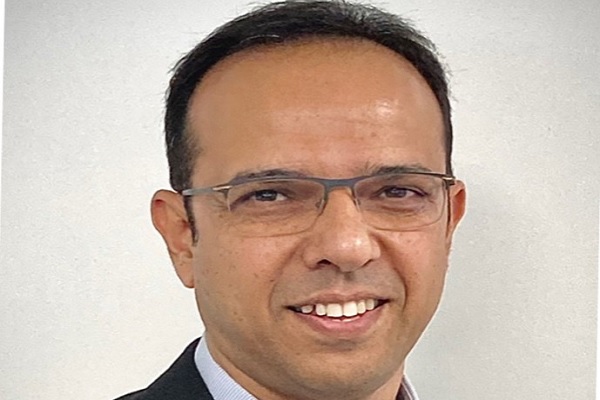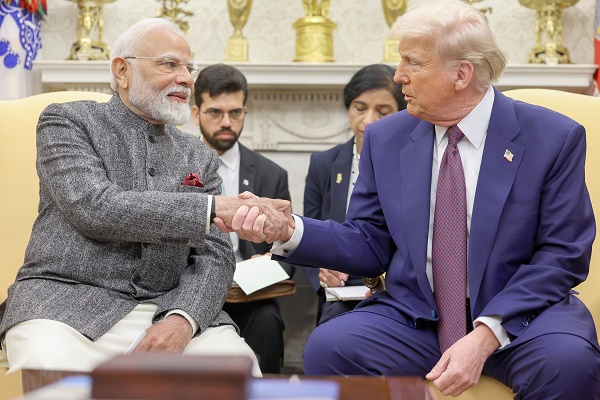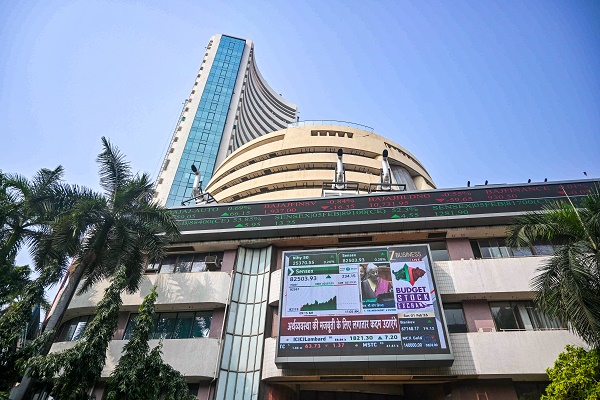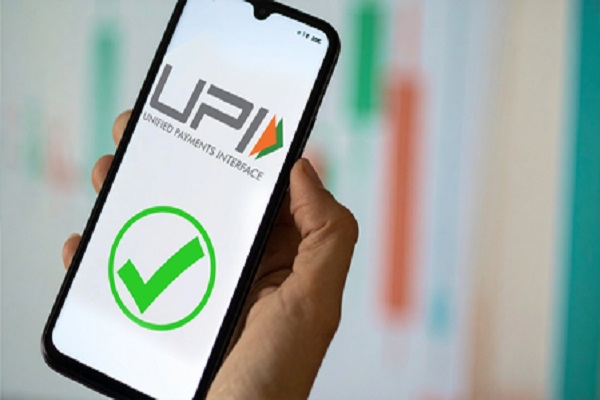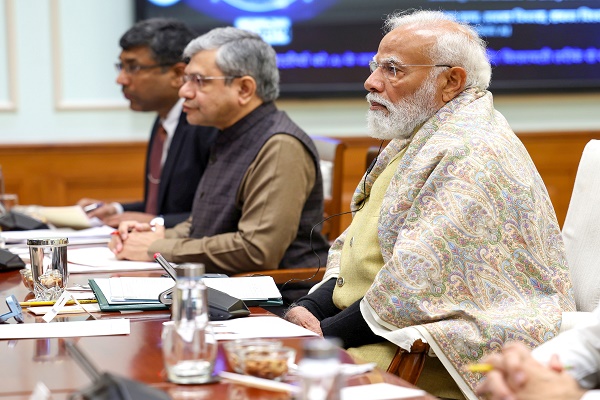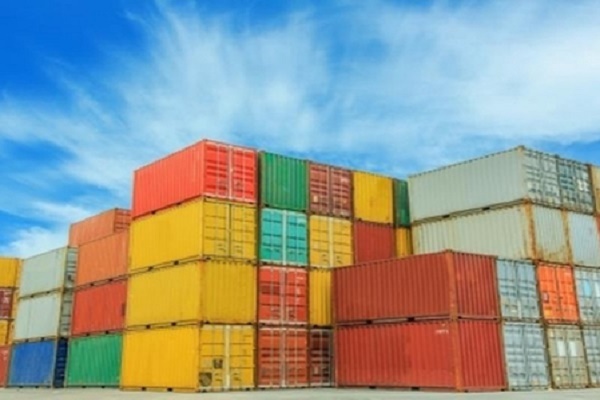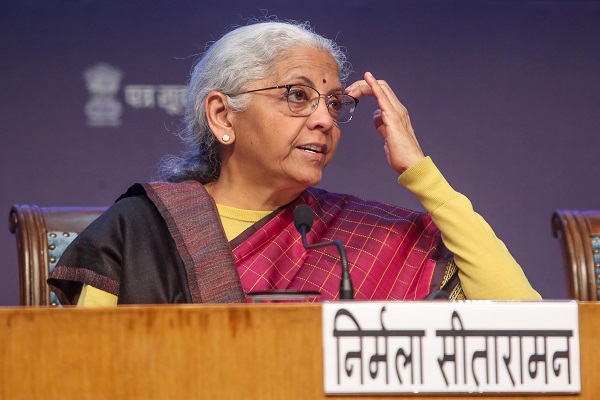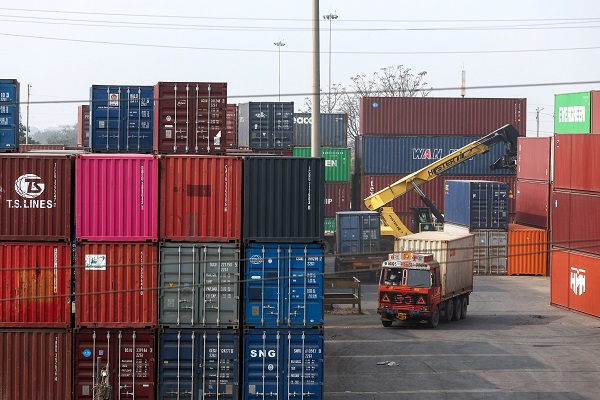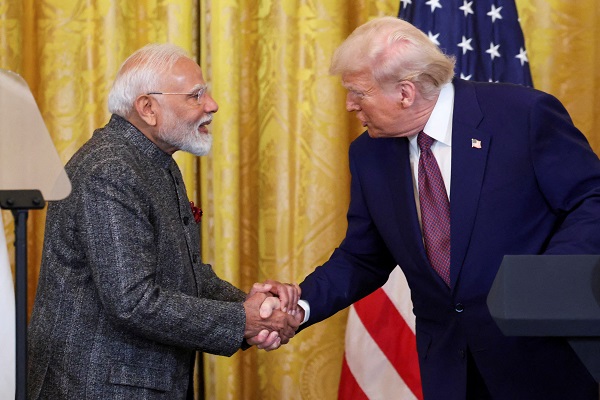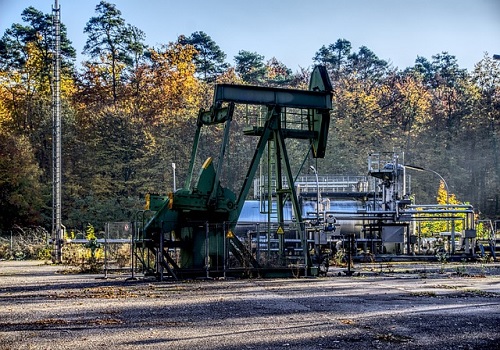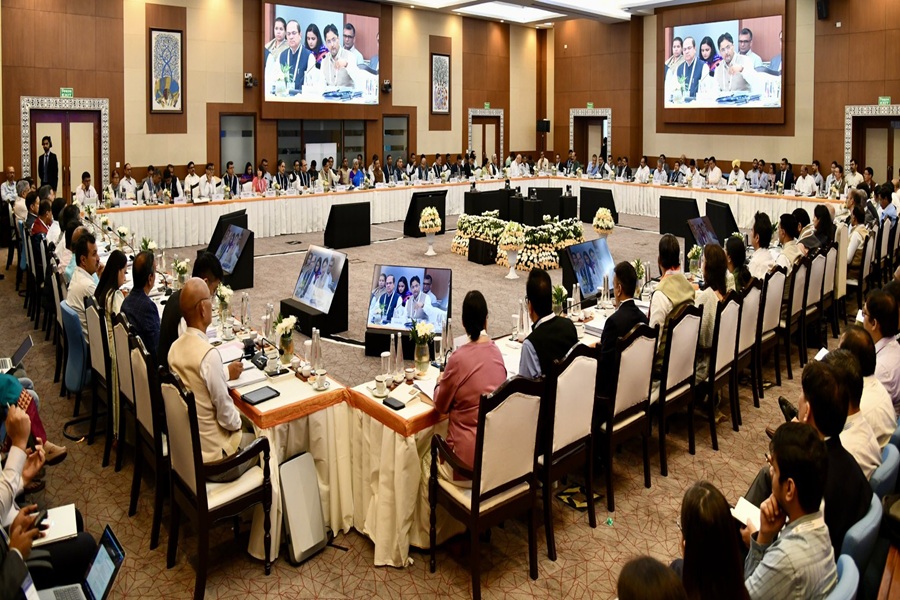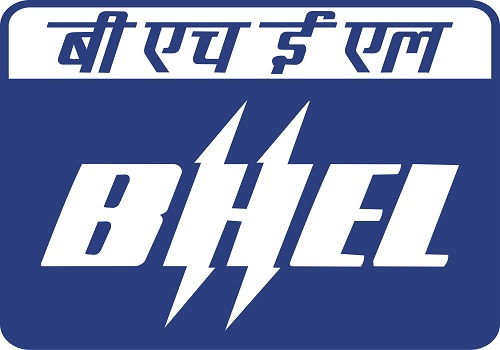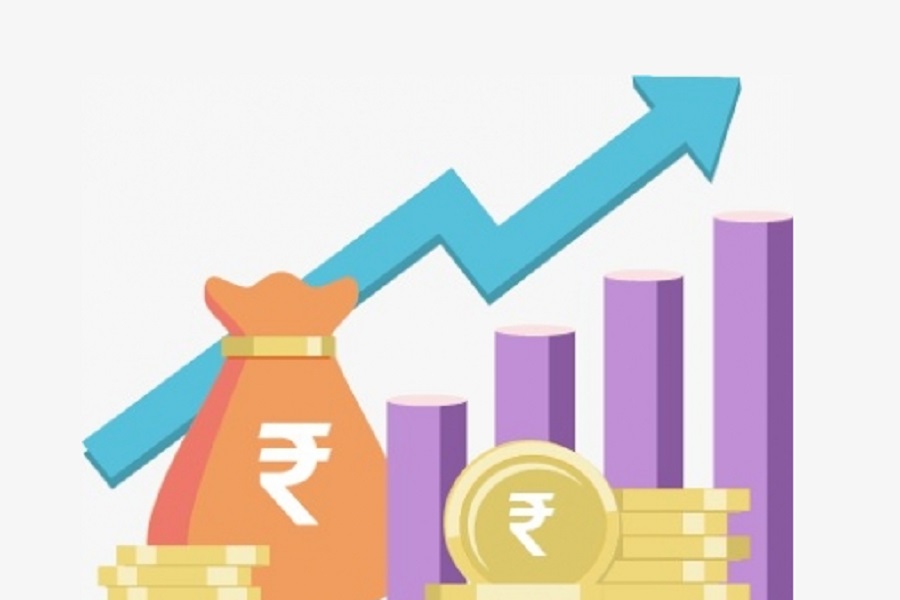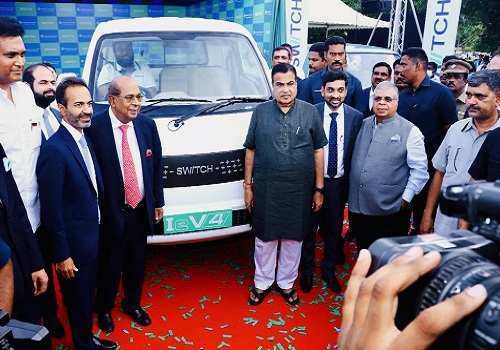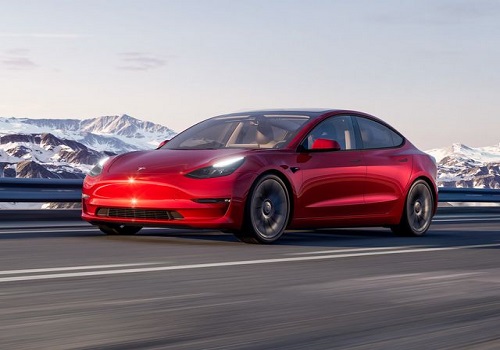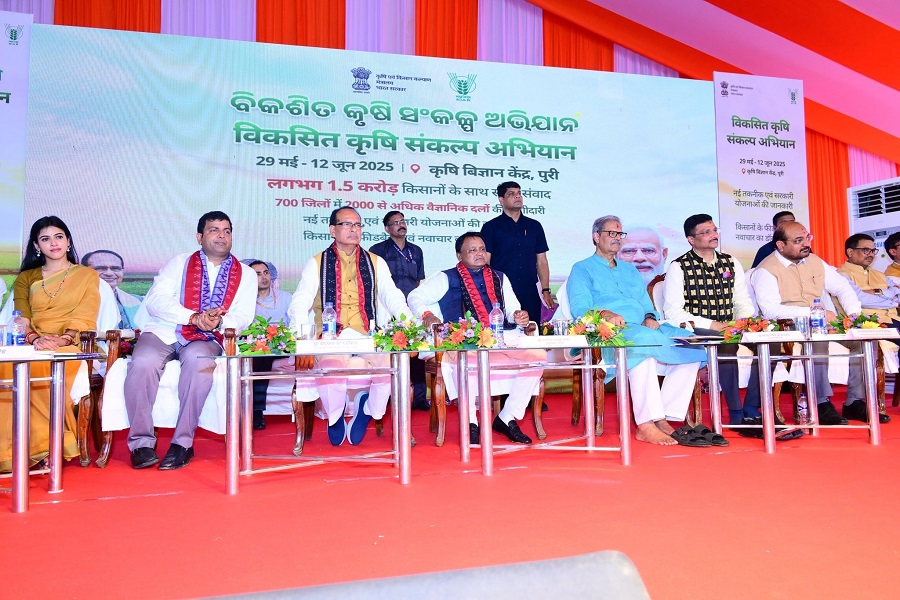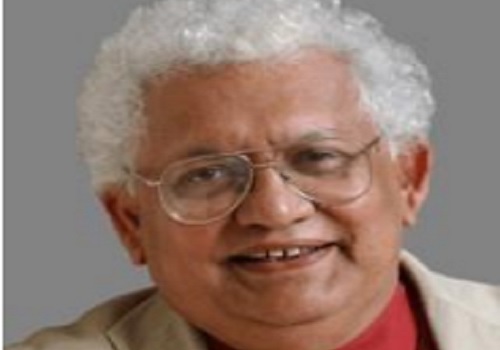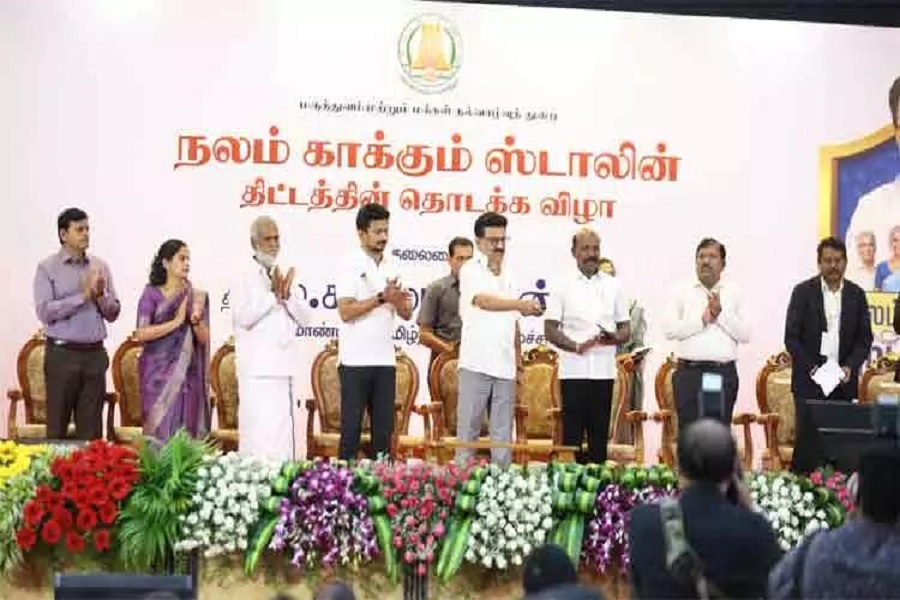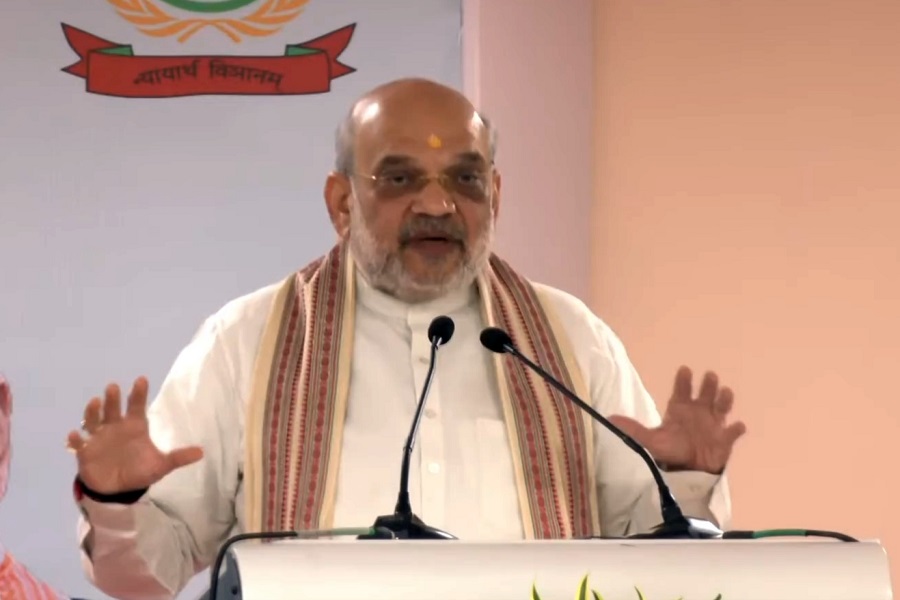PM Modi urges DCs to make Karnataka villages Covid-free
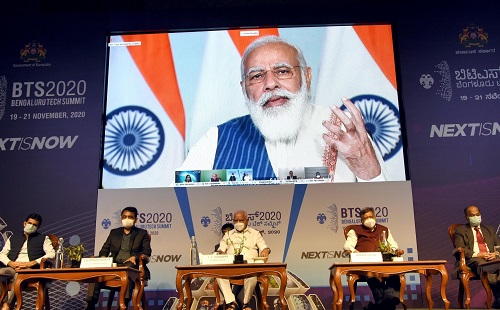
Interacting with 17 Deputy Commissioners (DCs) of Karnataka on Tuesday, Prime Minister Narendra Modi told them that their motto should be to make the villages Covid-free and to achieve this, they should lead their respective teams like commanders.
Interacting virtually with the field officials from 46 districts in nine states about their experience in handling the Covid pandemic, Modi said that though some of the officials had tested positive for Covid-19, they continued to serve the public.
"You have been an inspiration for your people. Many of you have not been able to visit your families for several days as you are working as Covid warriors," Modi said.
The Prime Minister suggested the DCs to form gram panchayat-level committees along with people's representatives to tackle the pandemic at the grassroots level, besides taking measures like making arrangements for car ambulances in emergency situations and see that there is no shortage of ambulances in any district.
Modi also advised the DCs to increase the number of containment zones and increase testing to break the chain of the virus.
"Have a cordial relationship with the frontline workers, doctors, police and media and motivate them frequently. Every life in your district is precious. Do not lose them," Modi said.
Karnataka Chief Minister B.S. Yediyurappa, who was also part of the meeting, said that the Prime Minister emphasised on local containment zones, aggressive testing and creating awareness among people, especially in the rural areas.
From Karnataka, Deputy Commissioners of 17 districts -- Uttara Kannada, Hassan, Ballari, Mysuru, Tumakuru, Kolar, Kodagu, Bengaluru Urban, Udupi, Bengaluru Rural, Shivamogga, Dharwad, Dakshina Kannada, Raichur, Kalaburagi, Mandya and Chikkaballapura -- participated in this meeting.
Home Minister Basavaraj Bommai told reporters later that the intention of the meeting was to know about the successful, innovative measures or best practices adapted in different districts and states to control the second wave of the pandemic, so that other districts can follow suit.
He said it also focused on how to contain the spread of the virus in the rural areas.
Bommai said the Prime Minister suggested that given the spread of the virus in the rural areas, it is important to involve people in the containment measures.
"Task forces involving voluntary organisations and women self-help groups should be constituted at every gram panchayat level, while tracking and tracing of primary and secondary contacts should be enhanced to control the spread of the disease," Bommai said, adding that the PM also advised to utilise the services of public representatives in a big way.
Measures for better and efficient utilisation of the health infrastructure while enhancing it were among the instructions given by the PM, he added.
Modi also asked the states to spread awareness among the children about Coronavirus through cartoons, writings and stories in local languages, especially with experts predicting the impact of a possible third wave among children, the Home Minister said.
Bomma said the Prime Minister further asked the ministers and officials working at the district level to function as field commanders by implementing measures by localising them or by making relevant changes in accordance with the ground situation.
Meanwhile, the Chief Commissioner of Bruhat Bengaluru Mahanagara Palike (BBMP), Gaurav Gupta, said that he briefed the Prime Minister about the civic body's preparedness to tackle the Covid situation, including setting up triaging centres, ramping up the number of beds, and taking assistance from the private sector, among others.
He said the Prime Minister also spoke about vaccine, saying that its availability will increase in the days to come.
"The PM also spoke about how to go forward with vaccination and the changes that need to be brought in. He also spoke about the measures needed to be taken for the rural areas," Gupta said.

